Cancer Fighting Foods
There are many cancer fighting foods; but not all are the same. The way we eat, by eating some foods and avoiding others, is paramount. This helps to either increase or decrease our risk of developing certain serious diseases, such as cancers. In this article, i will present you top 10 best cancer fighting foods based on experience and clinical studies.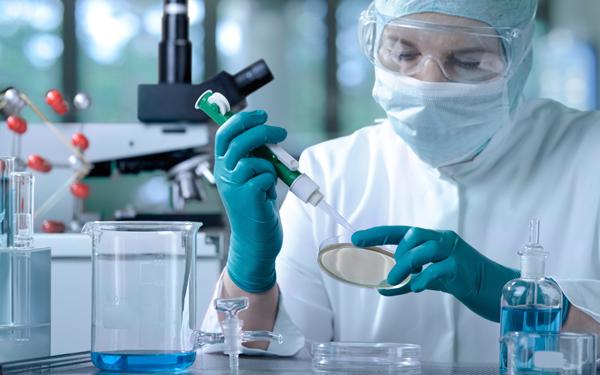
This is not an attempt to claim a particular food as a “cancer treatment”, but advise you to consume certain anticancer foods every day as a mode of prevention to limit potential formation of cancerous cells, or prevent their spread (metastasis) in case you were already diagnosed with a form of malignant tumor.
Everybody eats but not everyone healthily eats. Every year statistics reveal the number of cancer cases is increasing in the United States and many parts of the worlds. Most of the cancers have bad prognosis. It is therefore vital to faithfully adopt an anticancer diet for our health. A healthy diet made of non-GMO fruits and vegetables should be a priority of our modern world.
Choosing from a huge range of fruits and vegetables that have plenty of health benefits is not an easy task; however, considering many studies and research papers, 10 super foods are made it to the top cancer fighters.
Top 10 Cancer Fighting Foods to add in your diet
1. Moringa – This is one of the best cancer fighting foods according to many recent studies. In traditional medicine, all parts of the plant, but especially the leaves, have been used to treat many conditions, due to its nutritional and therapeutic properties. Moringa is a great source of vegetable protein, vitamins B1, B2, B3, B5, B6, B8, B9, A, C, E, as well as minerals (potassium, calcium, magnesium, iron, manganese, selenium), and essential amino acids (isoleucine, leucine, lysine, methionine, phenylalanine, threonine, tryptophan, valine).
In addition, small studies have shown that Moringa can help fight at least six types of cancer and up to 300 other medical conditions, working as anticariogenic, antidiabetic, antiaging, vermifuge, immune system booster, digestion support. Moringa is not just an anti cancer food, it is a superfood… Please Moringa Health Benefits for more info.
2. Watercress – several studies show astonishing power of watercress to destroy cancer cells. The tiny plant is rich in isothiocyanates, a compound capable of inhibiting the development of new blood vessels (angiogenesis) and reducing reproduction of cancer cells. The good news eating just 80 grams of watercress is enough to benefit all its nutritional and therapeutic values. Among cancers watercress can fight include breast cancer, lung cancer, colorectal cancer, and oral cancers. Please see Anti-cancer Properties of Watercress for additional info.
3. Berries – Cranberry and Black Raspberry are two most powerful berries when it comes to combat cancerous tumors. These berries help not only the development of cancerous cells but also fight them in people who have been diagnosed with a form of malignant tumor. Taking extract, fresh or frozen, they would prevent some cancers, according to many studies. For interesting details, see each one separately: Cranberry, Raspberry.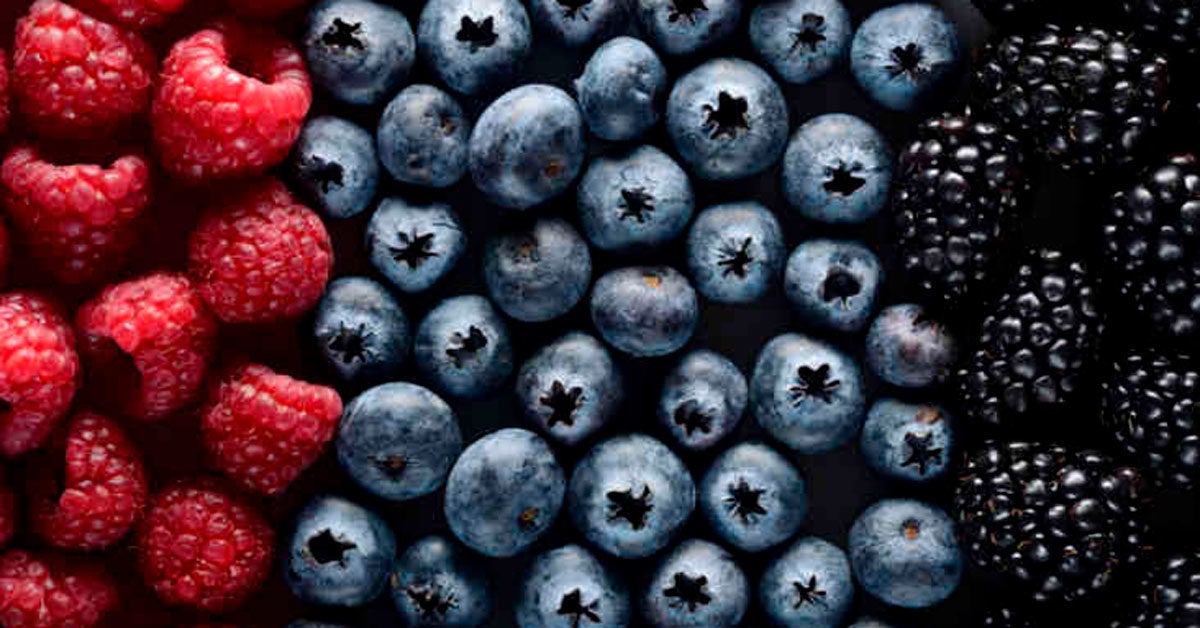
4. Nuts – According to a Harvard study, regular intake of fiber and nuts during adolescent reduces considerably the risk of developing breast cancer later in life. Other studies suggest two handfuls of nuts a week may help fight numerous cancers such as pancreatic cancer, liver cancer, breast cancer, colon cancer, and prostate cancer. But which nut works the best? Although almost all nuts are cancer fighting foods, walnut is the winner. “Within hours the blood of those fed walnuts is able to suppress the growth of breast cancer cells in a petri dish.” 25 walnuts have vitamin C equivalent to 100 oranges. Please see Walnuts Health Benefits for additional info.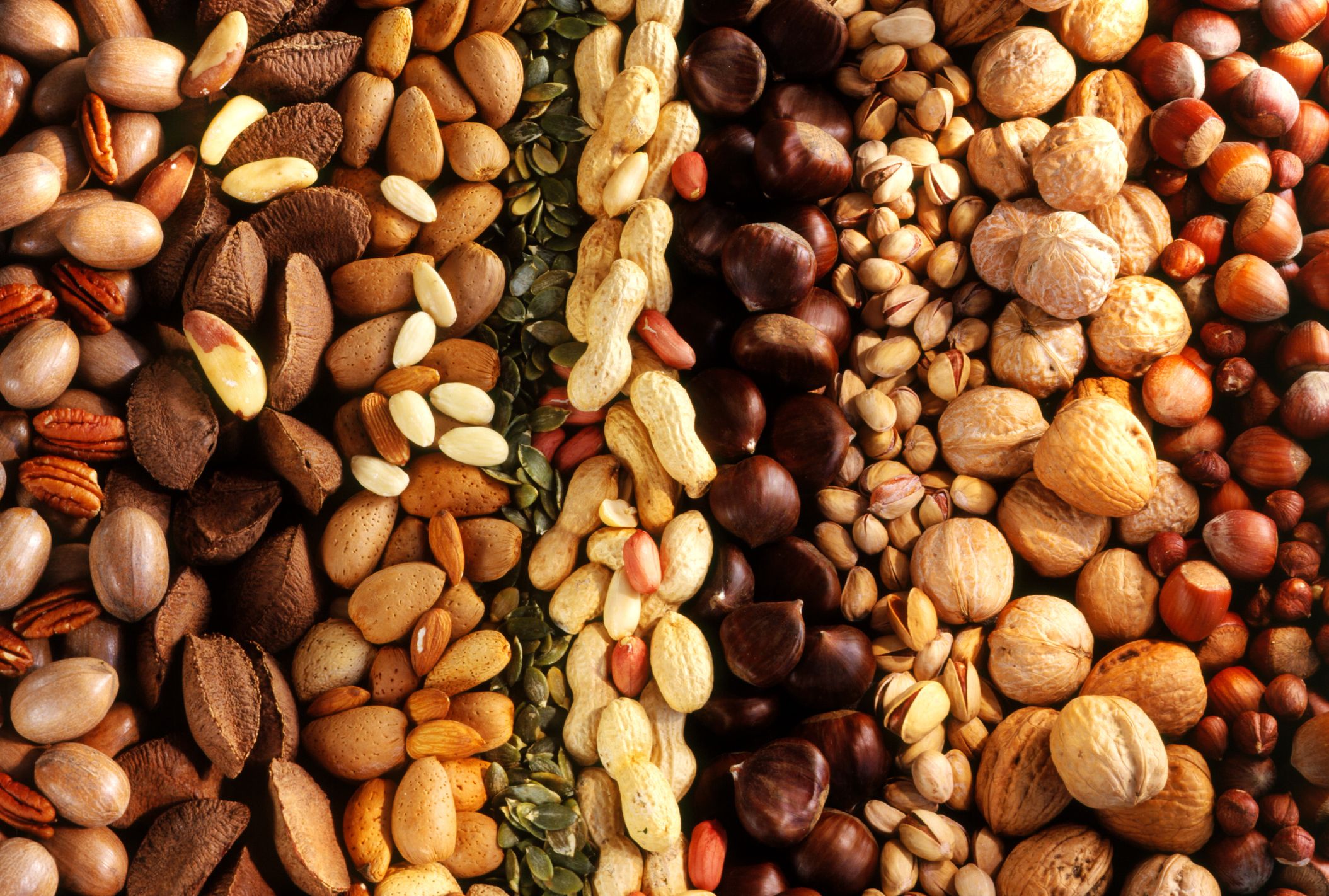
5. Lime and Lemon – If you are searching for anticancer foods on Google or Youtube it is very difficult to not find lime or lemon listed. Several studies have shown that lime and lemon help prevent certain types of cancer, such as esophageal cancer, stomach cancer, colon cancer, as well as cancers of mouth and pharynx. According to one of these studies, moderate citrus consumption (1 to 4 servings per week) would reduce the risk of cancer affecting the digestive tract and upper respiratory system.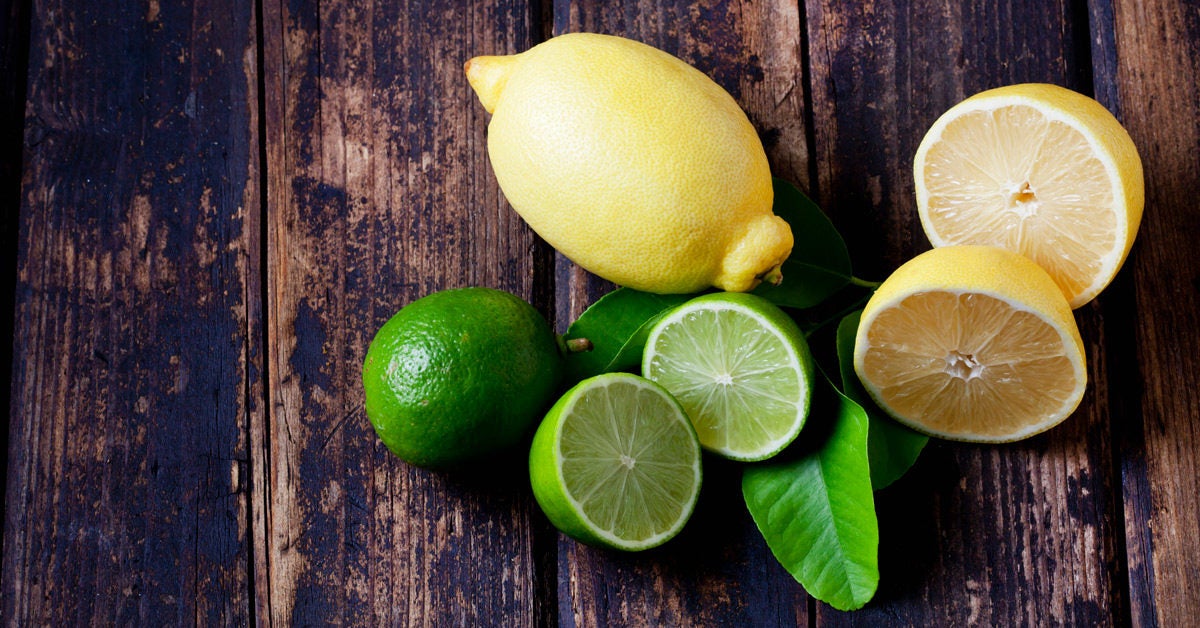
Flavonoids, compounds antioxidants contained in citrus fruits, have been shown to slow the proliferation of several types of cancerous cells and reduce the growth of metastases. These properties could be used as natural antitumor therapies. Other compounds present in citrus fruits also demonstrated anti-cancer effects in vitro or in lab animals. Citron and Lime could reduce the proliferation of malignant cells in the breast, stomach, lung, mouth, and colon.
6. Green Tea – The potential effects of green tea in preventing cancer was first motivated by epidemiological studies suggesting an association between green tea consumption and the prevention of certain cancers. Thereafter, studies in animals have shown that catechins, the major component of green tea extract, inhibit the growth of cancer cells in many organs such as the breast, lung, esophagus, prostate, liver, and skin. There is still, however, few clinical studies to corroborate the effects of green tea in humans.
In 2005, following an alleged request for anti-cancer properties of green tea, the Food and Drug Administration (FDA) said that there was no scientific evidence of beneficial effects of green tea on combating the following cancers: colon, rectum, stomach, lung, pancreas, and ovaries. For breast and prostate, the FDA has concluded that its preventive effect is unlikely. However, many other studies have shown the healing effects of green tea against endometrial cancer, ovarian cancer, prostate cancer, breast cancer, esophageal cancer, and Cancer of the mouth …
7. Broccoli – Broccoli is among the top cancer fighting foods in the world. It is now conventionally known and accepted that regular consumption of cruciferous vegetables – watercress, kale, broccoli, cauliflower, cabbage, Brussels sprouts… – may prevent certain cancers, such as lung, ovarian, prostate and kidney. Broccoli, consumed regularly (a few times a week) could considerably reduce the risk of colorectal cancer, as well as cancers of stomach, lung, prostate, and even breast.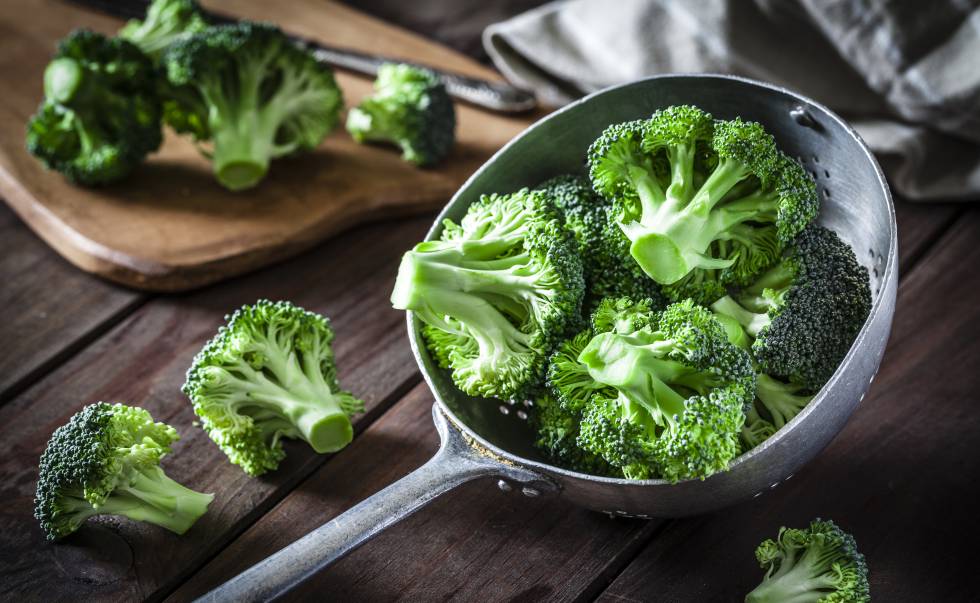
Epidemiological studies suggest that cruciferous vegetables, including broccoli, provide more protection against several types of cancer than fruits and legumes in general. It is shown that consumption of 3 to 5 servings of cruciferous per week resulted in significant protection against cancers. A recent study found that regular consumption of broccoli can increase the chances of surviving bladder cancer in patients with advanced conditions. Broccoli must be in your top of anti cancer foods.
8. Kale – eaten as a vegetable in main dishes or used in salad, kale is rich in nutrients and antioxidants which are primordial for our well-being. This tiny vegetable contains forty flavonoids including the powerful quercetin which protects the immune system. Kale also contains a flavonoid called kaempferol which research has shown to have properties to reduce the risk of chronic diseases, especially cancer. Other antioxidant compounds, glucosinolates, present in kale and other cruciferous play an undoubtful role in the prevention of certain cancers: gall bladder, breast, colon, ovary, and prostate. Kale is indeed a potent anti cancer food.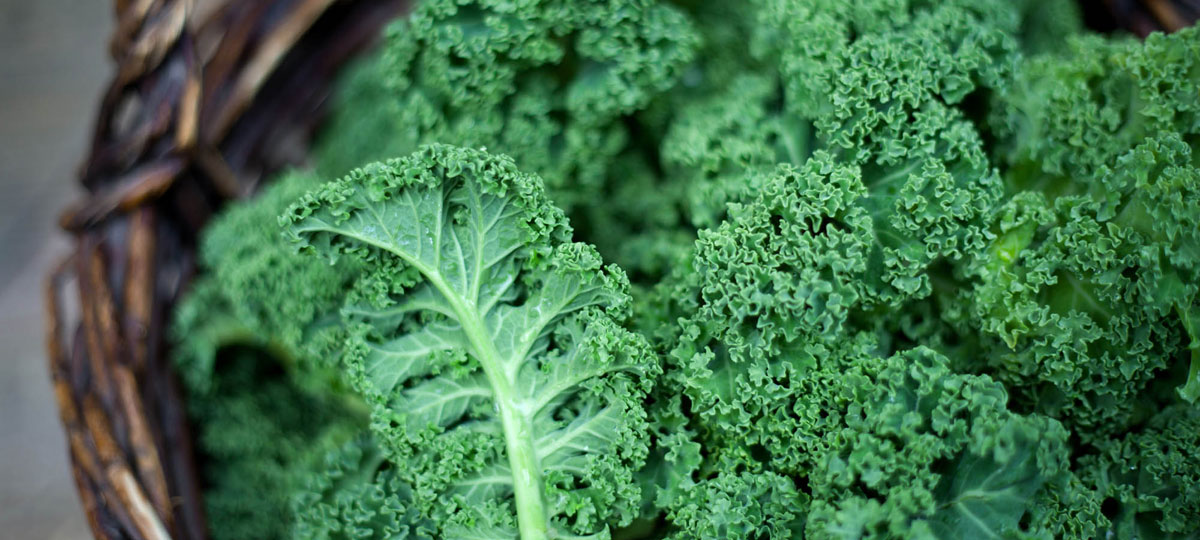
9. Chaga Mushroom – Chaga is one of the most powerful medicinal mushrooms, highly considered in alternative medicine in Russia and Eastern Europe. It has high concentration of betulin and betulinic acid. It also has anti-inflammatory properties. Several studies have shown that Chaga extract helps fight cancer and detoxify the body of radioactive materials emitted during chemotherapy. The mushroom strengthens the immune system to combat all types of pathogenic attacks, in addition to preventing asthma and allergies. It would also be a regenerator of the liver and the digestive system. However, due to the hypoglycemic activity of polysaccharides which it contains, caution must be appropriate for those who are prone to hypoglycemia. Taking the extract is the safest way to go. Do not neglect to include chaga mushroom in in then list of your cancer fighting foods.
10. Turmeric – Turmeric is an important plant in socio-cultural life of the Indian subcontinent, where it is regarded as an exceptional thanks to its many properties: spice, food preservative, coloring agent, cosmetic, and medical. Turmeric is also the subject of numerous scientific studies worldwide In addition to Southeast Asia. Most of the studies are conducted to better understand its medical properties.
Turmeric as a cancer prevention and alternative treatment have been studied since 1985 with Kuttan: the results of in vitro and in vivo experiments in mice showed a reduction of tumor development with the extracts of turmeric and its active component, curcumin. Numerous studies have been conducted thereafter on the inhibitory effects of turmeric and its active ingredient curcumin in the treatment of many cancers, mostly colon, liver, lung, ovary, breast, leukemia, prostate, stomach, and pancreas. These studies also suggest that curcumin has great potential as adjuvant chemotherapy agent.
Turmeric is identified as effective chemopreventive agent for colorectal cancers in rodents. It is one of the best anticancer foods on the planet.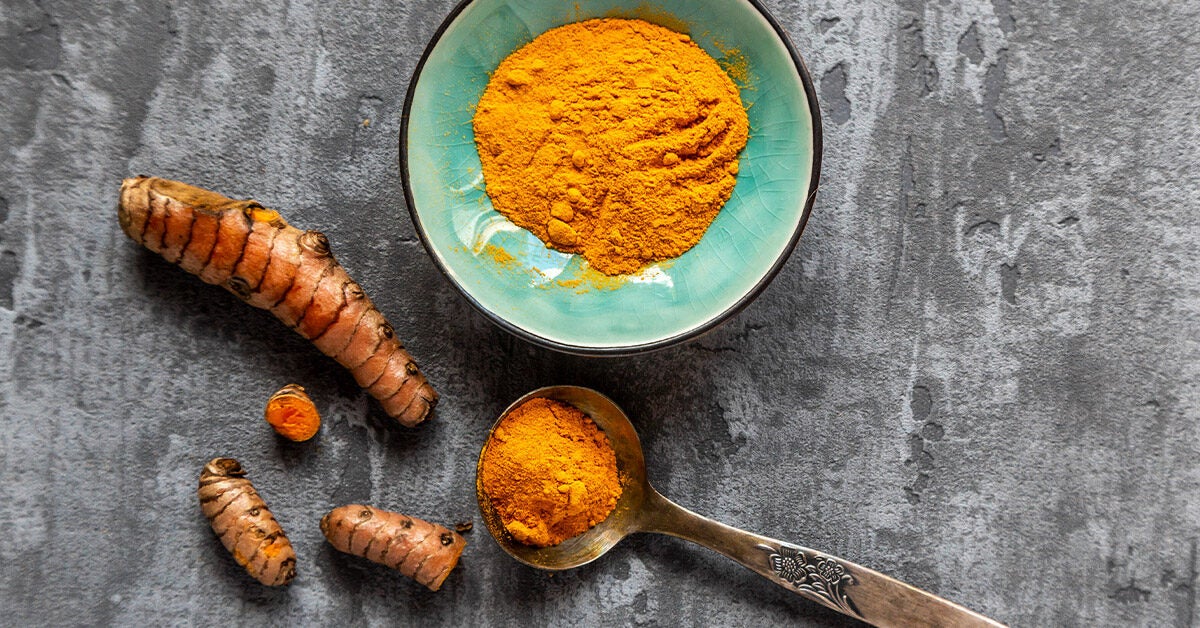
The initial findings of these studies have led some agencies, such as the American Cancer Society, to advocate the use of turmeric preventively against cancer.
Although some cancer fighting foods and herbs can help they are not recommended here as a curative treatment. Claims are everywhere on the internet, “anti cancer foods and supplements”, from sellers trying to sell their products. Be wise enough to understand there no magic supplement when it comes to fight cancers.
As the saying goes “Prevention is better than cure”, along with your oncologist recommendation, use these foods as preventive method or an alternative to combat any form of malignant tumor you have.
Sources:
- Moringa oleifera as an Anti-Cancer Agent against Breast and Colorectal Cancer Cell Lines: PMID: 26288313 [PubMed – in process] PMCID: PMC4545797
- Health benefits of Moringa oleifera: PMID: 25374169 [PubMed – indexed for MEDLINE]
- Willcox JK, Ash SL, Catignani GL. Antioxidants and prevention of chronic disease. Crit Rev Food Sci Nutr 2004;44(4):275-95.
- Stahl W, Sies H. Bioactivity and protective effects of natural carotenoids. Biochim Biophys Acta 2005 May 30;1740(2):101-7.
- J Yang, R H Liu, L Halim. Antioxidant and antiproliferative activities of common edible nut seeds. Food Science and Technology 2009 42:1 – 8.
- Syed Alwi SS, Cavell BE, Telang U, Morris ME, Parry BM, Packham G. In vivo modulation of 4E binding protein 1 (4E-BP1) phosphorylation by watercress: a pilot study. Br J Nutr. 2010; June 15:1-9. doi: 10.1017/S0007114510002217.
- J P V Heuvel, B J Belda, D B Hannon, P M Kris-Etherton, J A Grieger, J Zhang, J T Thompson. Mechanistic examination of walnuts in prevention of breast cancer. Nutr Cancer 2012 64(7):1078 – 1086.
- C S Berkey, W C Willett, R M Tamimi, B Rosner, A L Frazier, G A Colditz. Vegetable protein and vegetable fat intakes in pre-adolescent and adolescent girls, and risk for benign breast disease in young women. Breast Cancer Res. Treat. 2013 141(2):299 – 306.
- Y Bao, F B Hu, E L Giovannucci, B M Wolpin, M J Stampfer, W C Willett, C S Fuchs. Nut consumption and risk of pancreatic cancer in women. Br J Cancer 2013 109(11):2911 – 2916.
- X Su, R M Tamimi, L C Collins, H J Baer, E Cho, L Sampson, W C Willett, S J Schnitt, J L Connolly, B A Rosner, G A Colditz. Intake of fiber and nuts during adolescence and incidence of proliferative benign breast disease. Cancer Causes Control 2010 21(7):1033 – 1046.
- P Papanastasopoulos, J Stebbing. Nuts and cancer: Where are we now? Lancet Oncol. 2013 14(12):1161 – 1162.
- Muir CS, Nectoux J, Staszewski J. The epidemiology of prostatic cancer. Geographical distribution and time-trends. Acta Oncol. 1991;30(2):133-40. Review.
Parkin DM, Bray F, et al. Global cancer statistics, 2002. CA Cancer J Clin. 2005 Mar-Apr;55(2):74-108. - Yang CS, Wang X, et al. Cancer prevention by tea: animal studies, molecular mechanisms and human relevance. Nat Rev Cancer. 2009 Jun;9(6):429-39. Review.
- Kurahashi N, Sasazuki S, et al; Green tea consumption and prostate cancer risk in Japanese men: a prospective study. JPHC Study Group. Am J Epidemiol. 2008 Jan 1;167(1):71-7. Epub 2007 Sep 29.
- Jian L, Xie LP, et al. Protective effect of green tea against prostate cancer: a case-control study in southeast China. Int J Cancer. 2004 Jan 1;108(1):130-5.
- Kikuchi N, Ohmori K, et al. No association between green tea and prostate cancer risk in Japanese men: the Ohsaki Cohort Study. Br J Cancer. 2006 Aug 7;95(3):371-3. Epub 2006 Jun 27.
- Bettuzzi S, Brausi M, et al. Chemoprevention of human prostate cancer by oral administration of green tea catechins in volunteers with high-grade prostate intraepithelial neoplasia: a preliminary report from a one-year proof-of-principle study. Cancer Res. 2006 Jan 15;66(2):1234-40.
- Seely D, Mills EJ, et al. The effects of green tea consumption on incidence of breast cancer and recurrence of breast cancer: a systematic review and meta-analysis. Integr Cancer Ther. 2005 Jun;4(2):144-55.
- Bae JM, Lee EJ, Guyatt G. Citrus fruit intake and pancreatic cancer risk: a quantitative systematic review. Pancreas 2009;38:168-74.
- Foschi R, Pelucchi C, et al. Citrus fruit and cancer risk in a network of case-control studies. Cancer Causes Control 2010;21:237-42.
- Kunimasa K, Ikekita M, Sato M et al. Nobiletin, a citrus polymethoxyflavonoid, suppresses multiple angiogenesis-related endothelial cell functions and angiogenesis in vivo. Cancer Sci. 2010;101:2462-9.
- Benavente-Garcia O, Castillo J. Update on uses and properties of citrus flavonoids: new findings in anticancer, cardiovascular, and anti-inflammatory activity. J.Agric.Food.Chem. 2008;56:6185-205.
- Patil JR, Chidambara Murthy KN, et al. Bioactive compounds from Mexican lime ( Citrus aurantifolia ) juice induce apoptosis in human pancreatic cells. J.Agric.Food.Chem. 2009;57:10933-42.
- Benavente-Garcia O, Castillo J. Update on uses and properties of citrus flavonoids: new findings in anticancer, cardiovascular, and anti-inflammatory activity. J.Agric.Food.Chem. 2008;56:6185-205.
- Adepoju G, Adeyemi T. Evaluation of the effect of lime fruit juice on the anticoagulant effect of warfarin. J.Young Pharm. 2010;2:269-72.
- Brennan P, Hsu CC, et al. Effect of cruciferous vegetables on lung cancer in patients stratified by genetic status: a mendelian randomisation approach. Lancet 2005 October 29;366(9496):1558-60.
- Verhoeven DT, Goldbohm RA, et al. Epidemiological studies on brassica vegetables and cancer risk. Cancer Epidemiol Biomarkers Prev 1996 September;5(9):733-48.
- Hara M, Hanaoka T, et al. Cruciferous vegetables, mushrooms, and gastrointestinal cancer risks in a multicenter, hospital-based case-control study in Japan. Nutr Cancer 2003;46(2):138-47.
- Lin HJ, Probst-Hensch NM, et al. Glutathione transferase null genotype, broccoli, and lower prevalence of colorectal adenomas. Cancer Epidemiol Biomarkers Prev 1998 August;7(8):647-52.
- Park EJ, Pezzuto JM. Botanicals in cancer chemoprevention. Cancer Metastasis Rev 2002;21(3-4):231-55.
- Kirsh VA, Peters U, Mayne ST et al. (2007) Prospective study of fruit and vegetable intake and risk of prostate cancer. Journal of the National Cancer Institute 99, 1200-1209
- Ambrosini GL, De Klerk NH, Fritschi L, et al. (2008) Fruit, vegetable, vitamin A intakes, and prostate cancer risk. Prostate Cancer and Prostatic Diseases 11, 61-66.
- Tang L, Zirpoli GR, Guru K et al. (2010) Intake of Cruciferous Vegetables Modifies Bladder Cancer Survival. Cancer Epidemiology Biomarkers & Prevention 19, 1806-1811.
- Jeffery EH & Keck AS (2008) Translating knowledge generated by epidemiological and in vitro studies into dietary cancer prevention. Molecular Nutrition & Food Research 52, S7-S17.
- A review of the dietary flavonoid, kaempferol on human health and cancer chemoprevention: Department of Pharmaceutical Sciences, West Virginia University, Morgantown, WV, USA; Natural Science Division, Alderson-Broaddus College, Philippi, WV, USA– (Retrieved October 26, 2015)
- WOLFE, David (2012). Chaga: King of the Medicinal Mushrooms. Berkeley, California: North Atlantic Books.
- Mizuno T. Antitumor and hypoglycemic activities of polysaccharides from the sclerotia and mycelia of Inonotus obliquus. International Journal of Medicinal Mushrooms 1 (1): 301–316.
- « Turmeric » [archive], sur http://www.cancer.org [archive] (Retrieved October 26, 2015)
- « Can turmeric prevent or treat cancer? » [archive]
- « Curcuma » [archive], http://www.cancer.be [archive] (Retrieved October 26, 2015)
- Yigang Feng, Ning Wang, Fan Cheung, Meifen Zhu, Hongyun Li and Yibin Feng, « Molecular and Cellular Mechanism Studies on Anticancer Effects of Chinese Medicine », Biomedical Engineering, Trends, Research and Technologies, 8 janvier 2011, p. 5-7 (read online [archive])



